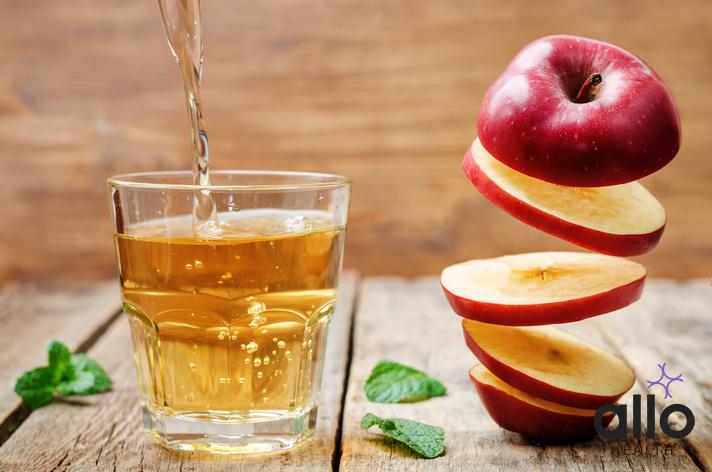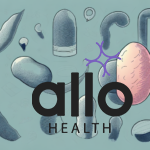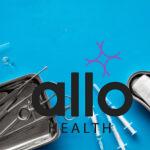Can Apple Juice Grow Your Penis?

Allo Health is dedicated to personalized well-being, offering support and trusted information tailored to individual health goals. The platform emphasizes human-generated content, led by a distinguished medical team of experts, including physicians and sexual health specialists. Their commitment to credibility involves rigorous fact-checking, authoritative research, and continuous updates to ensure accurate, up-to-date information. Allo Health's unique approach goes beyond conventional platforms, providing expert-led insights and a continuous commitment to excellence, with user feedback playing a crucial role in shaping the platform's authoritative voice.

Dr. Nikunj Gokani is a practicing Psychiatrist with a postgraduate degree (MD) in Psychiatry. He completed his MBBS (Bachelor of Medicine, Bachelor of Surgery) from D Y Patil School of Medicine and his MD in Psychiatry from MGM Medical College and Hospital. In addition to his general psychiatry training, Dr. Gokani has also pursued a Fellowship in Clinical Sexology under the Guidance of illustrious goodman’s name Dr. Deepak Jumani at Sir JJ Hospital and Grant Medical college, Mumbai. Currently working with Dr. T S S Rao (world Renowned Psychiatrist and Sexologist) at JSS Medical College and Hospital, Mysore, he is a co-investigator on numerous clinical trials on various illness in psychiatry. Keeping up with new times and during pandemic, he has been using various virtual platforms for his own private practise. Due to his active participation in numerous events during his academic years, he also possesses exceptional organisational skills. Dr. Nikunj has to his name various publications as well. There is Hope, even when your brain tells you there isn't is the words that he lives by
Why This Was Upated?
Our experts continually monitor the health and wellness space, and we update our articles when new information became available.
Updated on 21 August, 2023
- Article was updated as part of our commitment to diversity, equity, and inclusion.

"The following blog article discusses food and diet-related information for general educational purposes. However, it is important to note that the information provided is not intended as personalized dietary advice and should not be considered a substitute for professional guidance from a registered dietitian or qualified healthcare professional. Before making any significant changes to your diet or nutrition plan, it is recommended to consult with a registered dietitian or healthcare professional.
Book consultation
Dietary changes can have a significant impact on your overall health and well-being. It is important to approach any changes to your diet in a balanced and sustainable manner, ensuring that you meet your nutritional needs and avoid any potential nutrient deficiencies. Rapid or extreme changes in dietary patterns can be detrimental to your health and may require professional guidance.
It is crucial to note that any specific dietary recommendations or guidelines mentioned in this article may not be appropriate for individuals with specific medical conditions, allergies, or intolerances. A registered dietitian or healthcare professional can provide individualized advice, including modifications or alternative food choices to accommodate your unique circumstances.
The information provided in this article may not encompass all possible dietary considerations or account for the latest research and nutritional guidelines."
As men, we’re often preoccupied with our penis size. There are countless products on the market that promise to enlarge the penis, but one lesser-known option is apple juice. Yes, you read that right. Apple juice. But really, can apple juice grow your penis?
Can Your Penis Grow?
The growth of the penis is a common concern for many individuals, especially during puberty and adolescence. Let’s delve into the details:
- Puberty and Growth: The most significant period of penis growth occurs during puberty, which typically starts around the age of 9 to 14 years for boys. During this time, the body undergoes various hormonal changes, including an increase in testosterone production. Testosterone is a key hormone responsible for the development of secondary sexual characteristics in males, including the growth of the penis and testicles.
- Genetics: Genetic factors play a significant role in determining the potential size of an individual’s penis. Just like other physical traits, the size of the penis can vary widely from person to person due to genetic influences.
- Final Size: For most individuals, penis growth during puberty is generally complete by the age of 18. Some individuals may continue to experience minor growth into their early twenties. It’s important to note that while puberty-related growth is significant, it doesn’t result in dramatic changes for everyone.
- Hormones: Hormones play a crucial role in penis growth. Testosterone is the primary hormone responsible for the growth of the penis, as well as the development of muscle mass, body hair, and other secondary sexual characteristics. Other hormones, such as growth hormone, also contribute to overall growth.
- Medical Conditions: In some cases, medical conditions can affect penis growth. Hormonal imbalances, such as a deficiency in growth hormone or testosterone, can potentially lead to slower growth. Conditions like Klinefelter syndrome and certain genetic disorders can also impact sexual development.
- Lifestyle Factors: While there’s no surefire way to significantly increase penis size beyond what is genetically determined, maintaining a healthy lifestyle can support overall health and function. Proper nutrition, regular exercise, and adequate sleep can contribute to overall well-being.
- Myths and Misconceptions: It’s important to be aware that there are many myths and scams related to methods claiming to increase penis size, such as pills, pumps, and exercises. These methods are generally ineffective and can even be harmful. It’s best to avoid such products and consult a medical professional if you have concerns about your penis size.
Does Diet Help With Penis Growth?
Diet can play a role in overall health, including hormonal balance and circulation, which can indirectly affect sexual health and development, including penis growth. It’s important to clarify that diet alone is unlikely to cause significant changes in penis size beyond what is genetically determined. Let’s explore the role of diet in more detail:
- Nutrition and Hormonal Balance: Proper nutrition is essential for maintaining hormonal balance, including the production of testosterone, a hormone crucial for sexual development and function. A diet that lacks essential nutrients can potentially lead to hormonal imbalances, which might indirectly affect the development of secondary sexual characteristics like penis growth.
- Vitamins and Minerals: Certain vitamins and minerals are important for overall health and may indirectly support sexual health. For example:
- Vitamin D: This vitamin is linked to testosterone levels. Adequate sunlight exposure and vitamin D-rich foods like fatty fish and fortified dairy products can contribute to maintaining healthy levels.
- Zinc: Zinc is essential for testosterone production and overall reproductive health. Foods rich in zinc include oysters, lean meats, nuts, and legumes.
- Blood Circulation: A healthy diet can contribute to good blood circulation, which is important for overall sexual health. Foods that promote heart health, such as those rich in omega-3 fatty acids (found in fatty fish) and antioxidants (found in fruits and vegetables), can help maintain proper blood flow to the genitals.
- Avoiding Excess Weight: Maintaining a healthy weight is important for overall health, including sexual health. Excess body fat can lead to hormonal imbalances and reduced testosterone levels, which might indirectly affect sexual development.
- Hydration: Staying hydrated is essential for general health, and it can also contribute to proper bodily functions, including circulation. Drinking enough water helps maintain good blood flow, which can impact sexual health.
- Foods to Avoid: Some research suggests that a diet high in processed foods, sugar, and unhealthy fats might negatively impact hormone levels and overall health. Minimizing consumption of such foods can support overall well-being.
- Mindset and Confidence: It’s worth noting that feeling healthy and confident can positively influence how one perceives their body, including their genitals. A balanced diet can contribute to overall well-being and self-confidence.
While a healthy diet can support overall health and indirectly contribute to sexual development and function, it’s important to understand that the growth of the penis is primarily influenced by genetics and hormonal changes during puberty. There is no specific food or diet that has been scientifically proven to cause significant penis growth beyond what is naturally determined.
If you have concerns about your sexual development or overall health, it’s recommended to consult a medical professional. They can provide personalized guidance and address any questions or concerns you may have.
Can Apple Juice Grow Your Penis?
There is no scientific evidence to support the claim that apple juice or any other specific food or drink can directly cause penis growth beyond what is genetically determined. Penis growth primarily occurs during puberty due to hormonal changes and genetic factors. While a balanced diet and proper nutrition are important for overall health, they are unlikely to result in significant changes in penis size.
Claims suggesting that a specific food or drink, such as apple juice, can lead to penis growth are not based on scientific research and are often part of misleading or false information. It’s important to be cautious of such claims and to rely on reputable sources of information when it comes to matters of health and well-being.
Debunking Myths On Penis Growth
Let’s address the myth of being able to grow your penis through various methods:
- Pills and Supplements: There is no scientific evidence to support the effectiveness of pills or supplements claiming to enlarge the penis. Claims made by such products are often based on anecdotal testimonials rather than rigorous scientific studies.
- Pumps and Extenders: Devices like pumps and extenders claim to increase penis size through mechanical stretching. While they might temporarily lead to a slight increase in size due to increased blood flow, any effects are usually temporary and not permanent.
- Exercises: There are exercises that are sometimes marketed as “penis enlargement” exercises. These typically involve stretching and massaging techniques. While some exercises might help improve blood circulation and overall penile health, they are unlikely to result in significant permanent growth.
- Surgery: Surgical procedures for penis enlargement do exist, but they are associated with significant risks and potential complications. The results are often mixed and might not meet expectations. It’s essential to carefully consider the potential risks before undergoing any surgical procedures.
- Weight Loss: Some sources suggest that losing excess weight might make the penis appear larger by reducing the fat pad around the pubic area. While this might result in a slightly more prominent appearance, it’s not a guaranteed method for increasing size.
- Puberty and Hormones: During puberty, hormonal changes can lead to growth of various body parts, including the penis. Once puberty is complete, the growth typically stops.
Frequently Asked Questions
(1) Can apple juice really increase penis size?
No, there is no scientific evidence to support the claim that drinking apple juice can lead to penis growth. Penis size is primarily determined by genetics and hormonal changes during puberty. While a balanced diet is important for overall health, it won’t significantly impact penis size.
(2) Is there a specific food that can make my penis bigger?
No specific food can directly increase penis size. Penis growth occurs during puberty due to genetics and hormonal factors. Focus on a healthy lifestyle for overall well-being.
(3) What role does nutrition play in penis growth?
Nutrition supports overall health and hormone balance, indirectly affecting sexual health. A balanced diet can contribute to proper growth and function.
(4) Can vitamins or minerals in apple juice help?
Apple juice contains some vitamins, but they won’t cause penis growth. Adequate vitamin intake is important for general health.
(5) Are there any proven methods for penis enlargement?
There are no proven non-surgical methods for significant penis enlargement. Be cautious of scams and false claims.
(6) How does puberty affect penis size?
Puberty triggers hormonal changes that lead to penis growth. Genetics play a major role in determining final size.
(7) Is self-confidence related to penis size?
Yes, self-confidence can be influenced by body image, including genitals. Focus on overall well-being for a positive self-perception.
(8) Can weight loss affect penis size?
Excess weight can impact hormone balance, but weight loss won’t significantly change penis size. A healthy weight supports overall health.
(9) Can exercise increase penis size?
Exercise improves overall health, but it won’t cause noticeable penis enlargement. Focus on fitness for well-being.
(10) Should I consult a doctor about penis size concerns?
If you have concerns about penis size, development, or sexual health, consulting a medical professional is recommended. They can provide accurate information and address your questions.





































